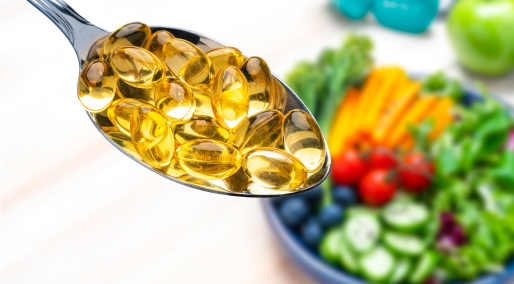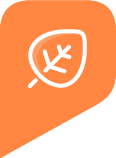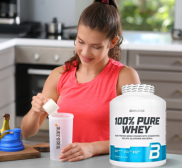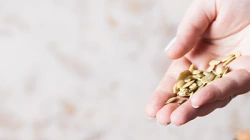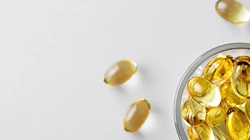- For the home
Health
- Bones and Joints
- Digestion and Healthy GI
- Essential Oils
- Fish Oil / Omega-3
- Healthy Sleep
- Heart and Cardiovascular System
- Immunity
- Liver
- MCT Oil
- Men
- Mind and Focus
- Minerals
- Pet Supplements
- Pro-Health Supplements
- Probiotics
- Senior
- Superfoods
- Urinary Tract
- Vitamins
- Vitamins for hair
- Vitamins for nails
- Vitamins for the skin
- Weight Management
- Woman
Healthy Diet
Herbs
Mother and Baby
Sport
Your Goal
Pet Supplements
Cosmetics
- Cosmetics for children
- Men's Cosmetics
- Unisex Cosmetics
- Women's Cosmetics
- Dezodoranty i perfumy
- Higiena jamy ustnej
- Kosmetyki akcesoria
- Kosmetyki dla dzieci2
- Kosmetyki do ciała
- Kosmetyki do higieny intymnej
- Kosmetyki do opalania
- Kosmetyki do pielęgnacji ust
- Kosmetyki do twarzy
- Kosmetyki do włosów
- Papier toaletowy / chusteczki
Boron
(total products: 13)For the home
Health
Bones and Joints
Digestion and Healthy GI
Essential Oils
Fish Oil / Omega-3
Healthy Sleep
Heart and Cardiovascular System
Immunity
Liver
MCT Oil
Men
Mind and Focus
Minerals
Pet Supplements
Pro-Health Supplements
Probiotics
Senior
Superfoods
Urinary Tract
Vitamins
Vitamins for hair
Vitamins for nails
Vitamins for the skin
Weight Management
Woman
Healthy Diet
Herbs
Mother and Baby
Sport
Your Goal
Pet Supplements
Cosmetics
Cosmetics for children
Men's Cosmetics
Unisex Cosmetics
Women's Cosmetics
Dezodoranty i perfumy
Higiena jamy ustnej
Kosmetyki akcesoria
Kosmetyki dla dzieci2
Kosmetyki do ciała
Kosmetyki do higieny intymnej
Kosmetyki do opalania
Kosmetyki do pielęgnacji ust
Kosmetyki do twarzy
Kosmetyki do włosów
Papier toaletowy / chusteczki
New products
Promotions
Recommended products
Short expiration dates
Advantages of boron supplementatio
While more research is needed to fully understand the potential health benefits of boron supplementation, there are some potential advantages associated with this mineral. These include:
-
Improved bone health: Boron is involved in the metabolism of calcium, magnesium, and vitamin D, which are all important for bone health. Studies suggest that boron supplementation may help improve bone density and reduce the risk of osteoporosis. Increases bone mineral density.
-
Increased testosterone levels: Some studies have suggested that boron supplementation may increase testosterone levels in men, which can improve muscle mass, strength, and exercise performance.
-
Reduced inflammation: Boron may have anti-inflammatory properties and has been studied for its potential role in reducing inflammation in conditions such as arthritis.
-
Improved cognitive function: Some research has suggested that boron supplementation may improve cognitive function and memory, particularly in older adults.
-
Potential cancer prevention: Some studies have suggested that boron may have anti-cancer properties and may help reduce the risk of certain types of cancer, such as prostate cancer.
Disadvantages of boron supplementation
While boron supplementation is generally considered safe in recommended doses, there are some potential disadvantages and risks associated with its use. These include:
-
Toxicity: Taking high doses of boron supplements may cause toxicity, which can lead to symptoms such as nausea, vomiting, diarrhea, skin rash, and even seizures. It is important to follow recommended dosages and speak with a healthcare provider before taking any supplements.
-
Interactions with medications: Boron supplements may interact with certain medications, such as blood thinners and diuretics. It is important to speak with a healthcare provider before taking boron supplements if you are taking any medications.
-
Hormonal effects: While boron may increase testosterone levels in men, it is not recommended for use in women or children due to potential hormonal effects.
-
Allergic reactions: Some people may be allergic to boron supplements and experience allergic reactions such as hives, swelling, or difficulty breathing.
-
Unproven effectiveness: While some studies suggest potential health benefits of boron supplementation, more research is needed to fully understand its effectiveness and safety.
How to supplement boron
Boron can be obtained through dietary sources or supplements. Here are some ways to supplement boron:
-
Dietary sources: Boron is found in some foods such as nuts, legumes, whole grains, fruits, and vegetables. Foods that are particularly high in boron include almonds, peanuts, avocados, prunes, raisins, oranges, grapes, apples, and broccoli. Avoid a low boron diet.
-
Boron supplements: Boron supplements are available in capsule or tablet form, and can be purchased at health food stores or online. The recommended daily dose of boron varies depending on the individual and the reason for supplementation, but typically ranges from 1-20 mg per day. It is important to follow the recommended dosages on the product label and speak with a healthcare provider before taking any supplements.
-
Multivitamin supplements: Boron is also commonly found in multivitamin supplements. If you are taking a multivitamin supplement, check the label to see if it contains boron.
It is important to note that more research is needed to fully understand the potential benefits and risks of boron supplementation, and it is important to speak with a healthcare provider before taking any supplements.

